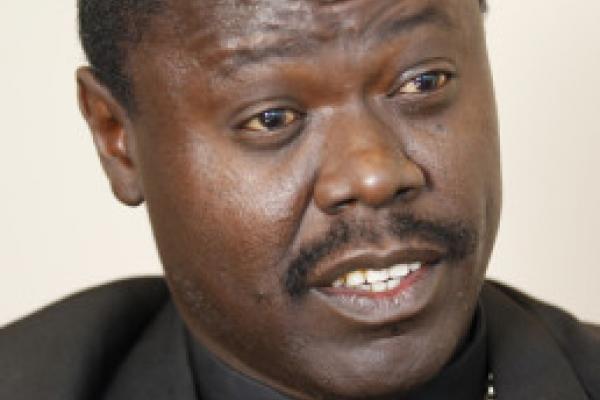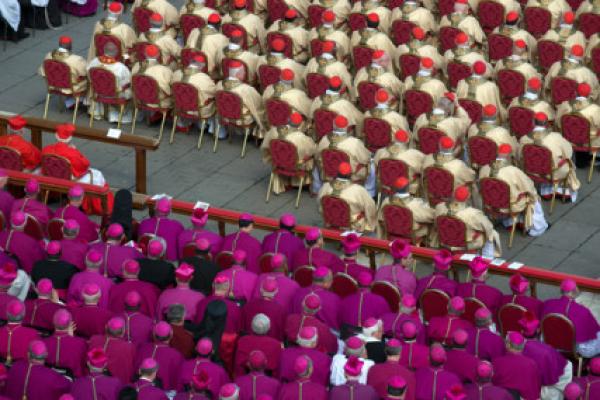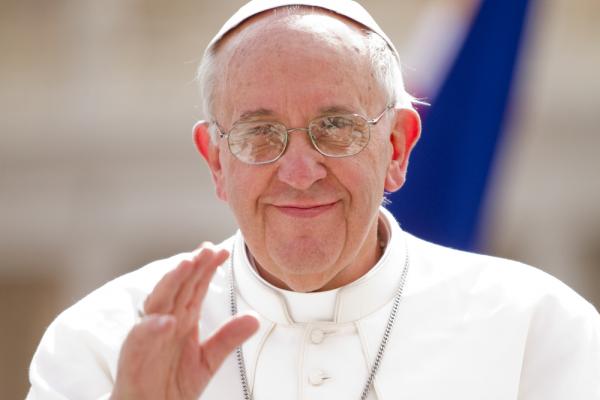After months of violence in the Central African Republic, signs of hope emerged following Friday’s esignation of interim President Michel Djotodia and Prime Minister Nicholas Tiengaye.
But Roman Catholic Archbishop Nestor Desire Nongo-Aziagbia of Bossangoa said that although guns had gone silent, the crisis was far from over.
“The shooting has ceased, but the tensions are still there,” Nongo-Aziagbia said Monday. “Resignation is a first step towards solving the crisis.”
The resignations at a regional summit in neighboring Chad sparked wild celebrations among Christians in the capital, Bangui. The president was a Muslim.
In naming his first batch of new cardinals on Sunday, Pope Francis made some surprising choices that largely confirmed the characteristics he wants in the Catholic Church he leads: a greater focus on the poor, a bigger voice for the Global South and a reduced emphasis on the traditional hierarchical perks.
True to form, Francis wrote each of the new cardinals and stressed that the new title “does not imply promotion.” He asked them to refrain “from any expression of worldliness or from any form of celebration contrary to the evangelical spirit of austerity, sobriety and poverty.”
Some had expected Francis to leave his mark by pushing well beyond the ceiling of 120 cardinals under the age of 80 who are eligible to vote in a conclave.
I wasn’t really expecting painful things to happen to me.
I knew that pain was a part of life, but — thanks in part to a peculiar blend of “God-has-a-plan” Southern roots, a suburban “Midwestern nice” upbringing, and a higher education in New England stoicism — I managed to skate by for quite some time without having to experience it.
After a handful of traumas in the last five years, things look different now. Trauma upends everything we took for granted, including things we didn’t know we took for granted. And many of these realities I wish I’d known when I first encountered them. So, while the work of life and healing continues, here are ten things I’ve learned about trauma along the way.
Pope Francis released the names of 19 new princes of the Catholic Church Sunday — none from the United States.
The list included cardinals for Burkina Faso and Haiti to show “concern for people struck by poverty,” according to Vatican spokesman the Rev. Federico Lombardi. And the pope created new cardinalatial sees, Perugia in Italy, and Cotabato on the island of Mindanao in the Philippines.
The consistory, scheduled for late February, will fill 13 vacant seats plus bring in three more cardinals to replace those who will turn age 80 — too old to vote in a papal election — by the end of May.
As the New Year brings reflection over the past year, we have heard much about Pope Francis and the ways he has surprised Catholics and non-Catholics alike. The suddenness of his predecessor’s resignation this past spring, the fact that he is the first Pope from the Americas, and his apparent commitment to his namesake St. Francis’ concern for the poor and displaced all contribute to the sense that this Pope embodies the unexpected.
Especially indicative of the way this Argentinian, who for a short time was a nightclub bouncer, has surprised people is being named “Person of the Year” by The Advocate, a popular U.S. magazine devoted to gay and lesbian rights, culture, politics, and entertainment. Although he did not (nor will he, likely) reverse the Church’s stance on gay marriage, this accolade was given to the Bishop of Rome based upon his apparent change in tone about gays and lesbians, reportedly having said to reporters, “Who am I to judge?” when asked about the issue. Clearly, this humble response has endeared the Pontiff to many who have been excluded from the fold, yet still yearn for hints of acceptance.
The period of Epiphany is a time in which the identity of the Divine’s chosen is revealed and often this identity entails some element of surprise. In the same vein, this week’s Old Testament text, Isaiah 49:1-7, highlights the unforeseen nature of the servant who restores Israel.
Sojourners campaigns assistant Anna Hall posted a great piece last week de-bunking 5 myths about the minimum wage. One of these myths — that most minimum wage workers are suburban teenagers — was countered by the facts: nearly two-thirds of minimum wage workers are adult women.
Don’t think of a suburban teenager — think of a single mother working full time while trying to raise her children, care for her family, and make enough to pay rent, probably without any paid sick or personal days (not to mention maternity leave). Could you do that on $15,000 a year?
On Jan. 13, Maria Shriver – who, in addition to her many accomplishments, is the daughter of the statesman widely regarded as the architect of the “War on Poverty” — released a report focusing on the needs of women in the current economy.
Folks who have just knocked back two drinks say they’re really aware of God at that moment.
And good sleep enhances a sense of God, joy, peace, and love.
Who knew?
Actually, about 160 people, so far, know such details about their spiritual lives. They were the first participants in SoulPulse, a newly launched, ongoing study of spirituality in daily life.
It’s an “experiential” research survey inspired by pastor/author John Ortberg and conducted by a team led by Bradley Wright, an associate professor of sociology at the University of Connecticut and author of Christians Are Hate-Filled Hypocrites … and Other Lies You’ve Been Told.
Twice a day for two weeks, participants receive questions asking about their experiences of spirituality, their emotions, activities, and more at the moment the text messages arrive.





